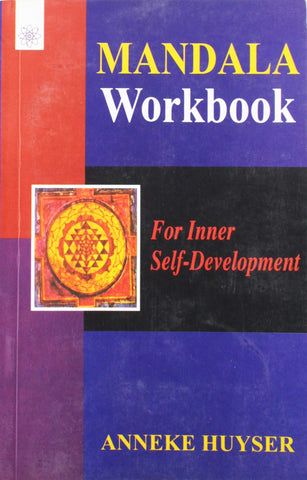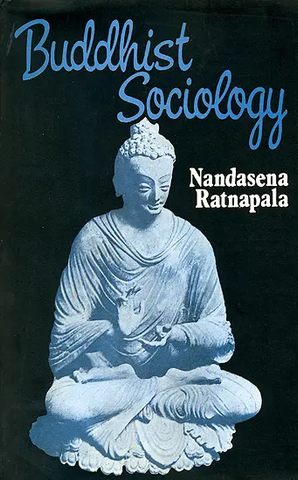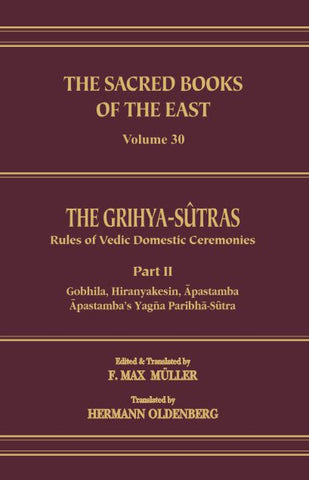Your cart is empty now.
The present book is divided into two parts. Part 1 is the translation of the verses.
The present translation of verses is from Pali into English: The Pali text used is the Dhammapada Pali approved by the Sixth International Buddhist Synod. When there is any doubt in the interpretation the dhamma concept of the verses or when the literal meaning is vague or inintelligible, the translator has refered to the Commentary (in Pali) and the Burmese translation of the Commentary by the Nyaunglebin Sayadaw, a very learned thera. The second part of the book contains summaries of the Dhammapada stories as it is generally believed that the Dhammapada commentary written by’ Buddhaghosa is a great help towards a better understanding of the Dhammapada. Three hundred .and five stories are included in the commentary. A translation of the verses is given at the end of each story.
In the end book contains glossary of the terms and an index of the words.
Dhammapada is one of the best known books of the Pitaka. It is a collection of the teachings of the Buddha expressed in clear, pithy verses. These verses were culled from various discourses given by the Buddha in the course of forty-five years of his teaching, as he travelled in the valley of the Ganges (Ganga) and the sub-mountain tract of the Himalayas. These verses ate often terse, witty and convincing. Whenever similes are used, they are those that are easily under- stood even bya child, e.g., the cart’s wheel, a man’s shadow, a deep pool, flowers. Through these verses, the Buddha exhorts one to achieve that greatest of all conquests, the conquest of self; to escape from the evils of passion, hatred and ignorance; and to strive hard to attain freedom from craving and freedom from the round of rebirths. Each verse contains a truth (dhamma), an exhortation, a piece of advice.
Dhammapada verses are often quoted by many in many countries of the world and the book has been translated into many languages. One of the earliest translations into English was made by Max Muller in 1870. Other translations that followed are those by F.L. Woodward in 1921, by Wagismara and Saunders in 1920, and by A.L. Edmunds (Hymns of the Faith) in 1902. Of the recent translations, that by Nadareda Mahathera is the most widely known. Dr. Walpola Rahula also has translated some selected verses from the Dhammapada and has given them at the end of his book ‘‘What the Buddha Taught," revised edition. The Chinese translated the Dhammapada from Sanskrit. The Chinese version of the Dhammapada was. translated into English by Samuel Beal (Texts from the Buddhist Canon known as Dhammapada) in 1878.
In Burma, translations have been made into Burmese, mostly in prose, some with paraphrases, explanations and abridgements of stories relating to the verses. In recent years, some books on Diammapada with both Burmese and English translations, together with Pali verses, have also been published.
The Dhammapada is the second book of the Khuddaka Nikaya of the Suttanta Pitaka, consisting of four hundred and twenty-three verses in twenty-six chapters arranged under various heads. In the Dhammapada are enshrined the basic tenets of the Buddha’s Teaching.
Verso (21) which begins with "Appamado amatapadam" meaning "Mindfulness is the way to Nibbina, the Deathless," 1s a very important and significant verse. Mindfulness is the most important element in Tranquillity and Insight Meditation. The last exhortation of the Buddha just before he passed away was also to be mindful and to endeavour diligently (to complete the task of attaining freedom from the round of rebirths thronga Magga and Phala). It is generally accepted that it was on account of this verse on mindfulness that the Emperor Asoka of India and King Anawrahta of Burma" became converts to Buddhism. Both kings had helped greatly in the propagation of Buddhism in their respective countries.
In verse (29) the Buddha has coupled his call for mindfulness. with a sense of urgency. The verse runs: "Mindful amongst the negligent, highly vigilant amongst the drowsy, the wise man advances like a race-horse, leaving the jade behind."
Verses (1) and (2) illustrate the immutable law of Kamma, under which every deed, good or bad, comes back to the doer. Here, the Buddha emphasizes the importance of mind in all our actions and speaks of the inevitable consequences of our deeds, words and thoughts.
Verses (153) and (154) are expressions of sublime and intense joy uttered by the Buddha at the very moment of his Enlightenment. These two verses give us a graphic account of the culmination of the Buddha’s search for Truth. They tell us about the Buddha finding the ‘house-builder,’ Craving, the cause of repeited births in Samsire. Having rid of Craving, for him no more houses (khiudhas) shall be built by Craving, and there will be no more rebirths.
Verses (277), (278) and (279) are also important as they tell us about the impermanent, unsatisfactory and the non-self nature of all conditioned things. It is very important that one should perceive the true nature of ali conditioned things and become weary of the khandhas, for this is the Path to Purity.
Then the Buddha shows us the Path leading to. the liberation from round of rebirths, i.e., the Path with eight constituents (Atthangiko Maggo) in Verse (273). Further, the Buddha exhorts us to make our own effort in Verse (276) saying, "You yourselves should make the effort, the Tathagatas only show the way." Verse (183) gives us the teaching of the Buddhas. It says, "Do no evil, cultivate merit, purify one’s mind; this is the teaching of the Buddhas."
In Verse (24) the Buddha shows us the way to success in life, thus: "If a person is energetic, mindful, pure in thought, word and deed, if he does everything with care and consideration, restrains his senses, earns his living according to the Dhamma and is not unheedful, then, the fame and fortune of that. mindful person increase."
These are some of the examples of the gems to be found in the Dhammapada. Dhammapada is, indeed, a philosopher, guide and friend to all.
This translation of verses is from Pali into English. The Pali text used is the Dhammapada Pali approved by the Sixth International Buddhist Synod. We have tried to make the translation as close to the text as possible, but sometimes it is very difficult, if not impossible, to find an English word that would exactly correspond to a Pali word. For example, we cannot yet find a single English word that can convey the real meaning of the word ‘"‘dukkha" used in the exposition of the Four Noble Truths. In this translation, wherever ‘he term "dukkha" carries the same meaning as it does in the Four Noble Truths, it is left untranslated, but only explained.
**Contents and Sample Pages**
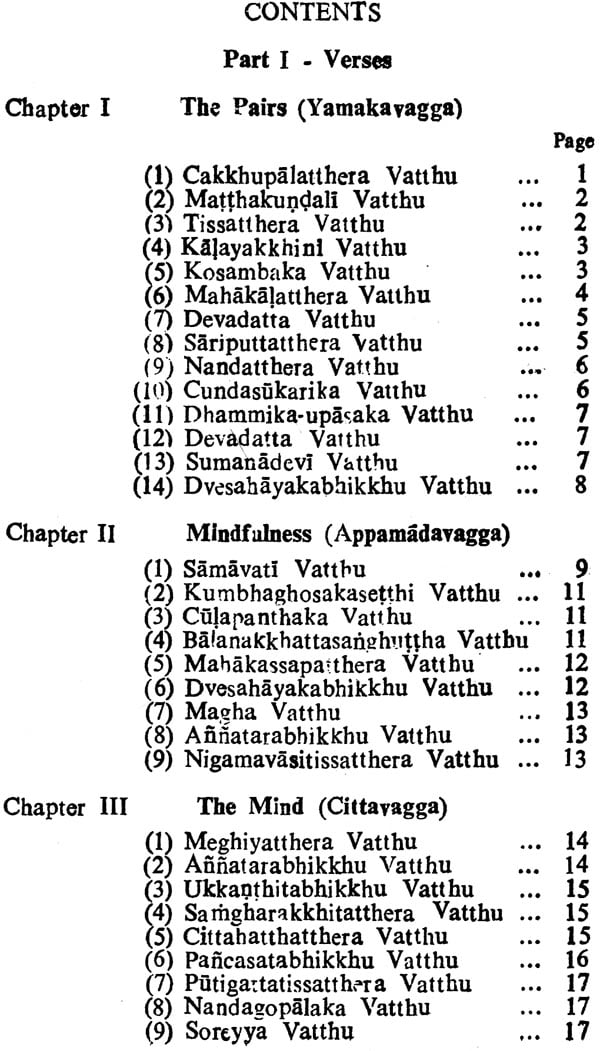
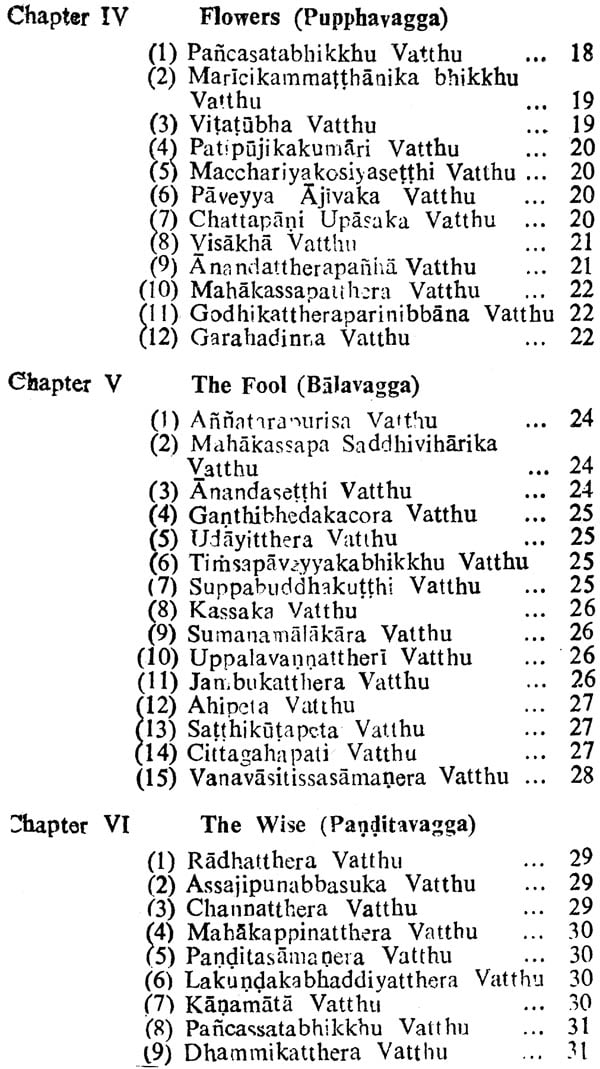
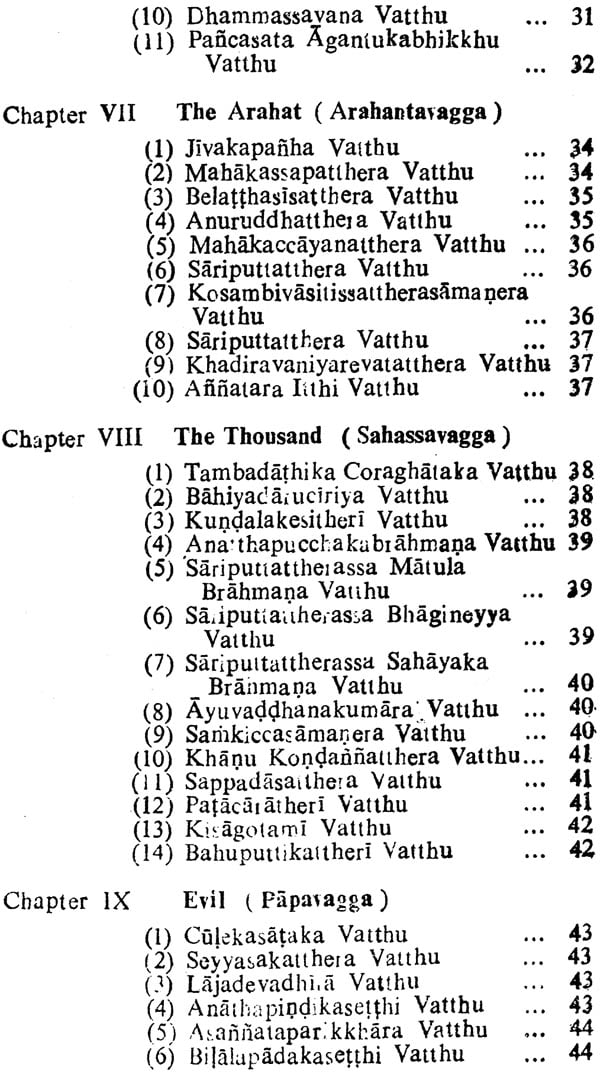

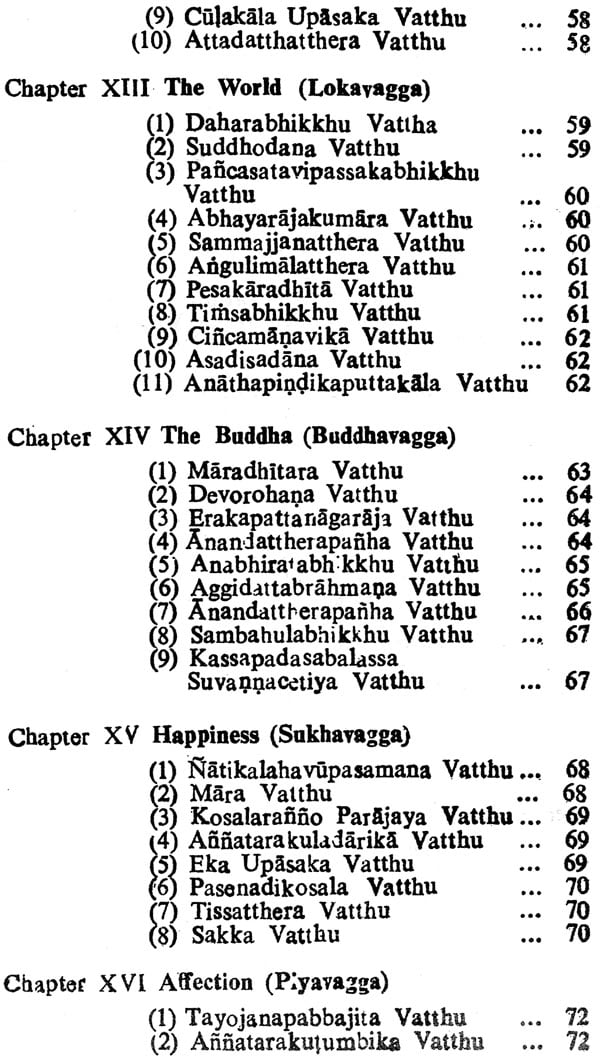
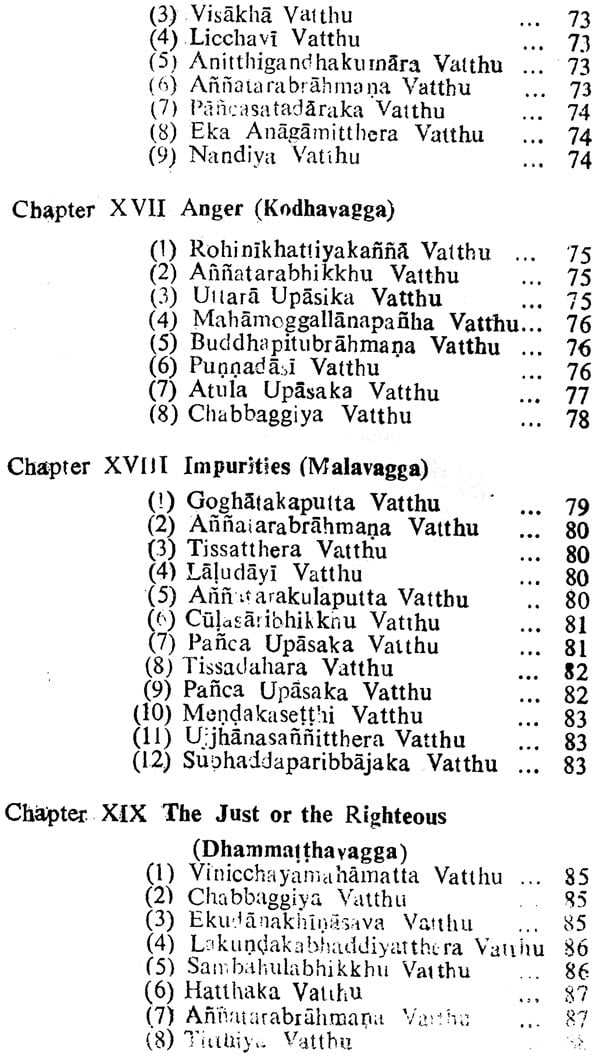
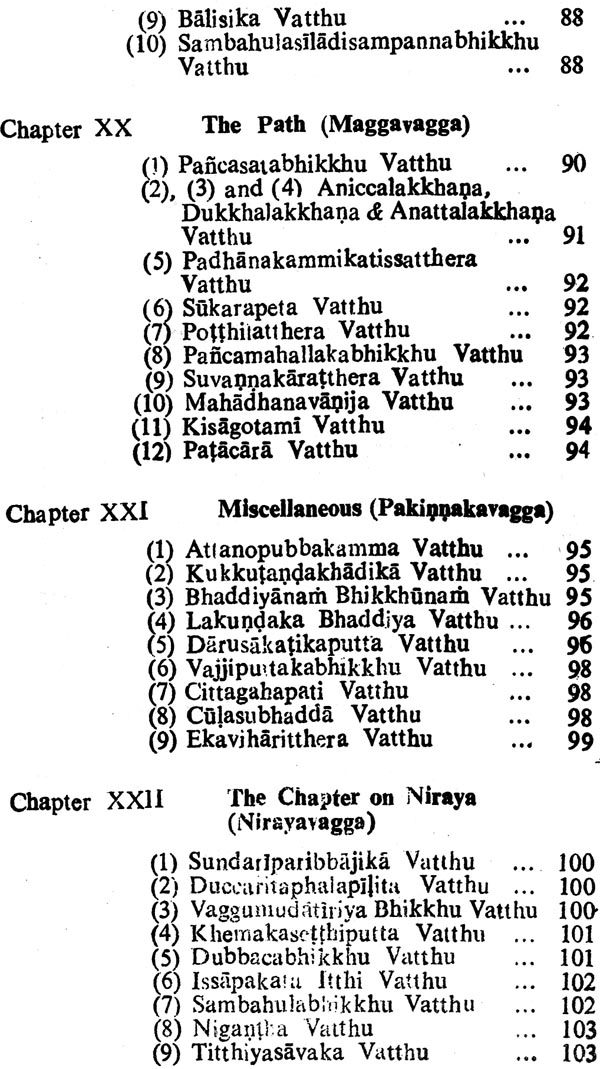
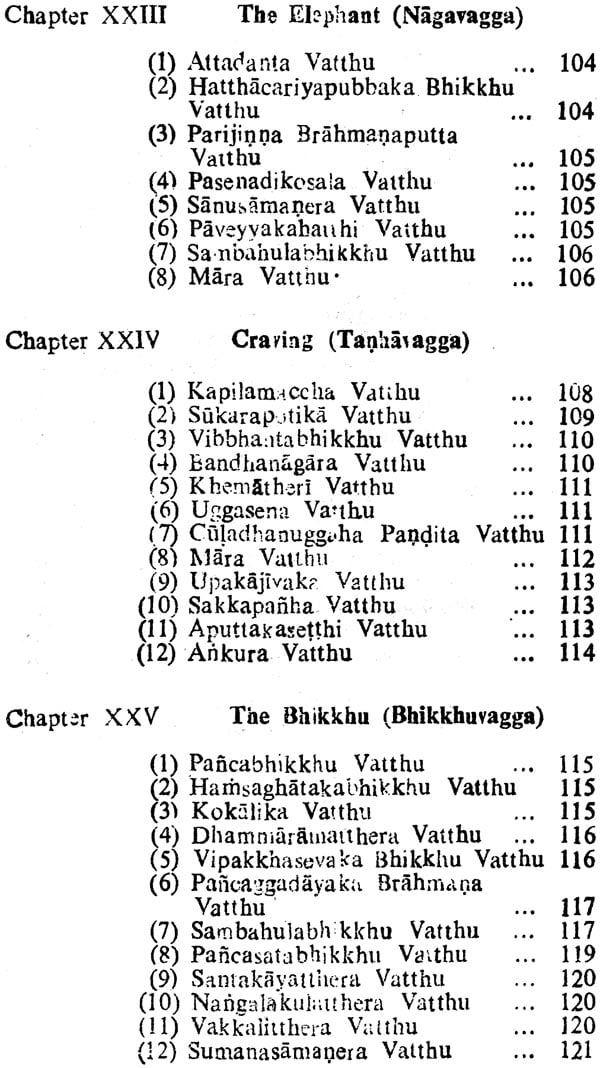
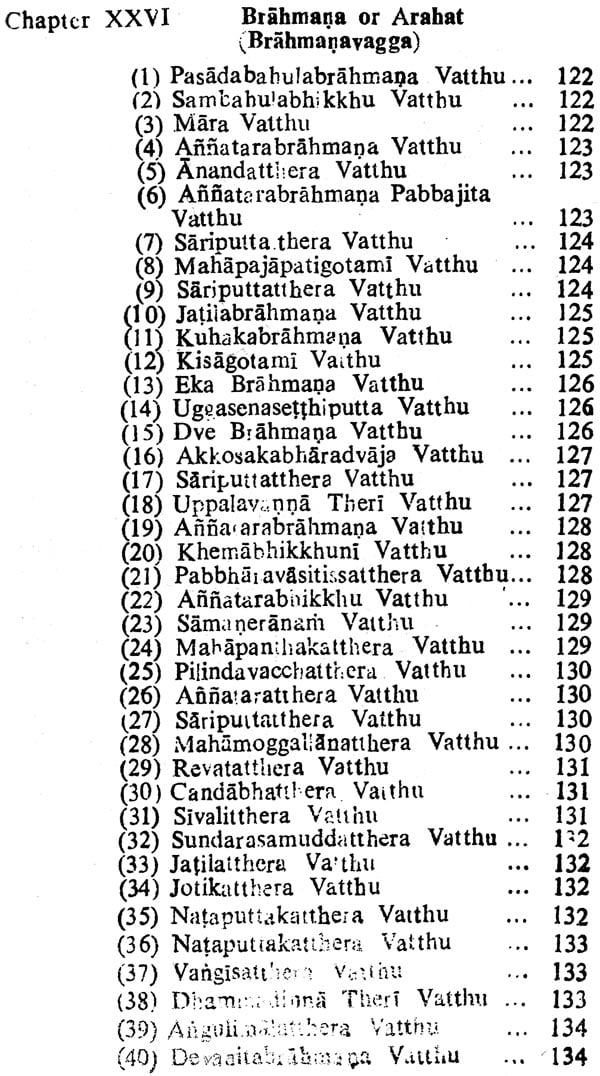
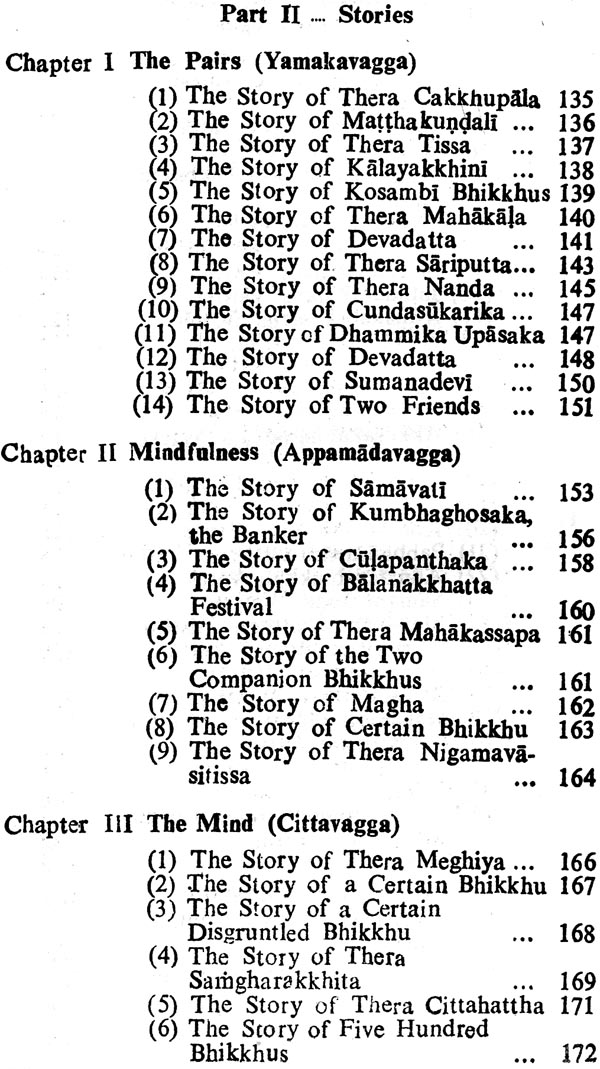

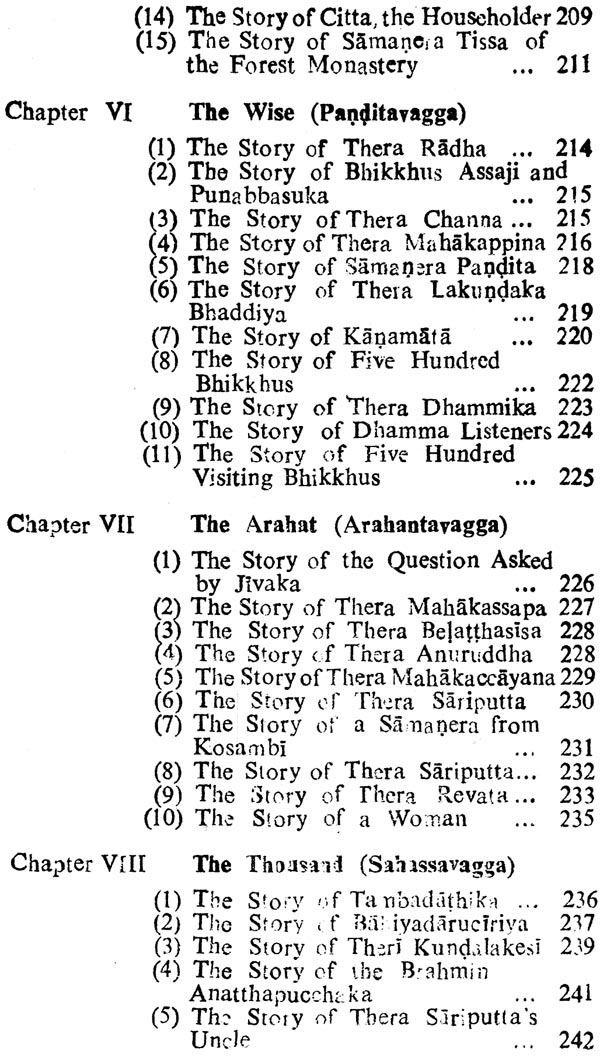
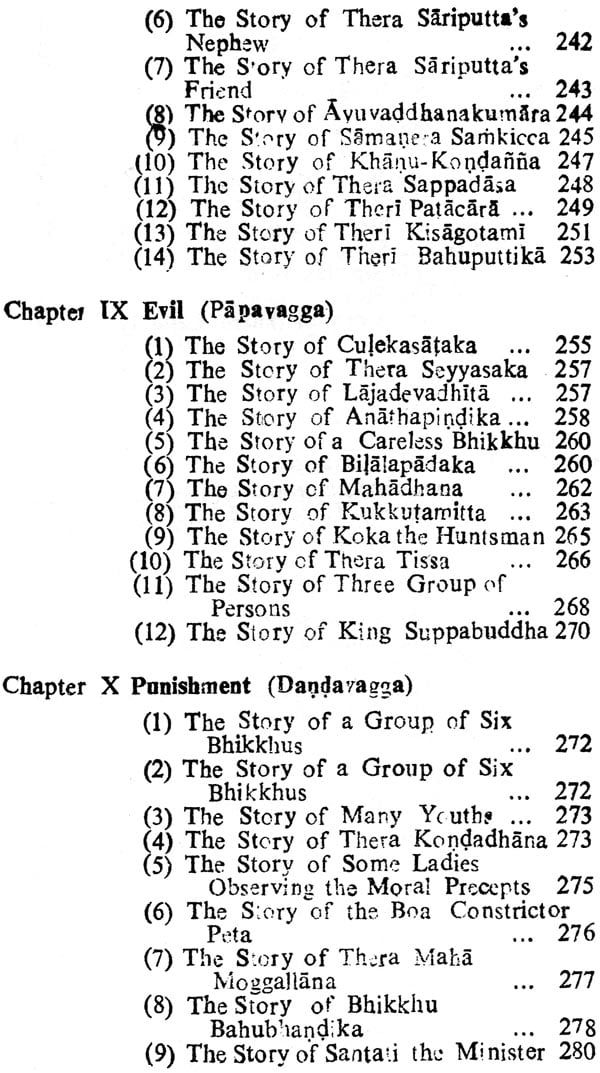
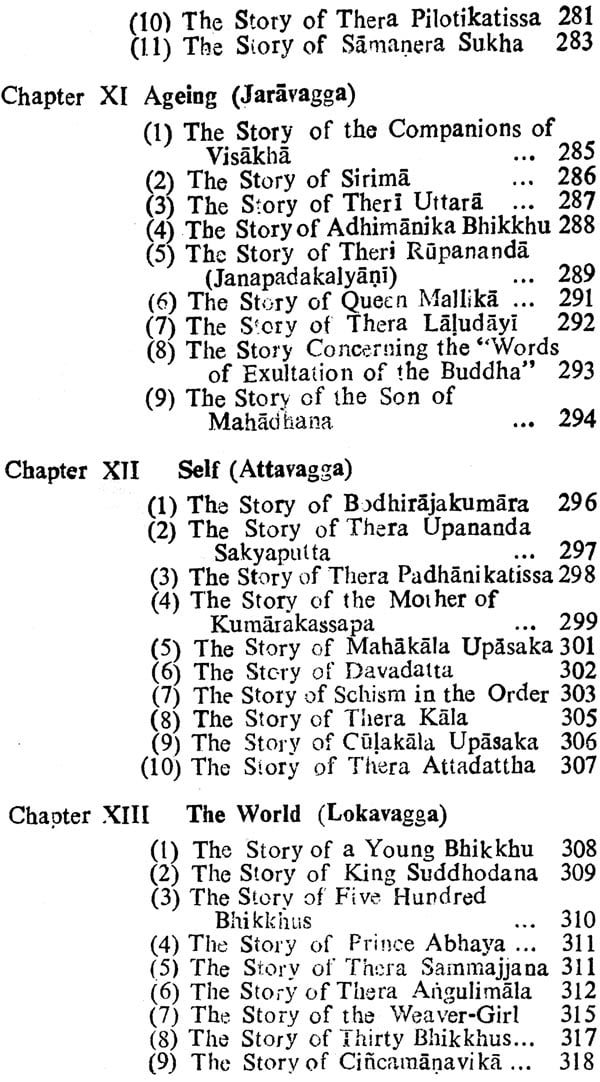
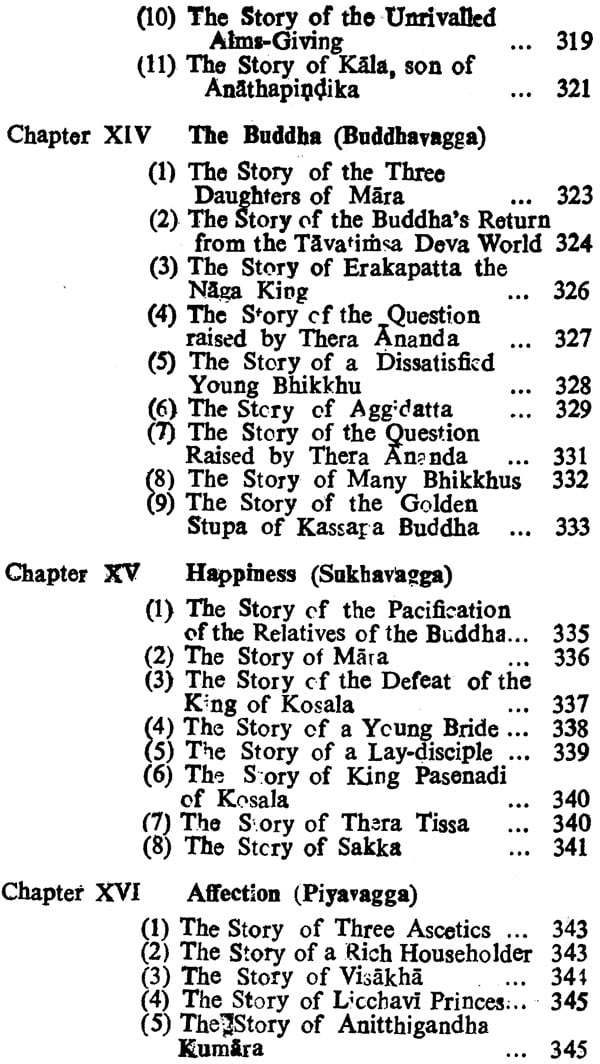
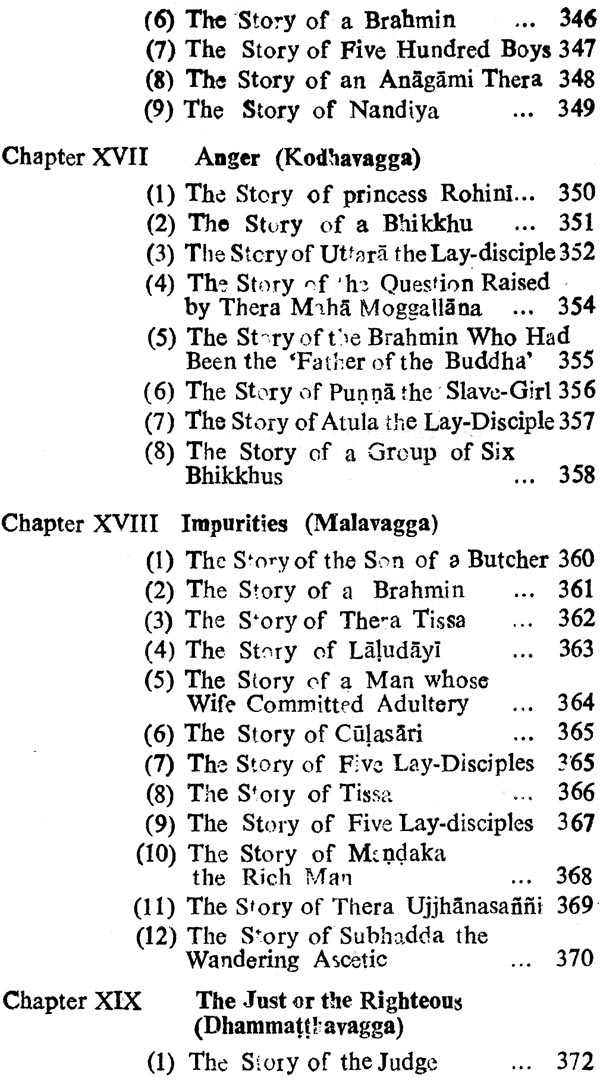
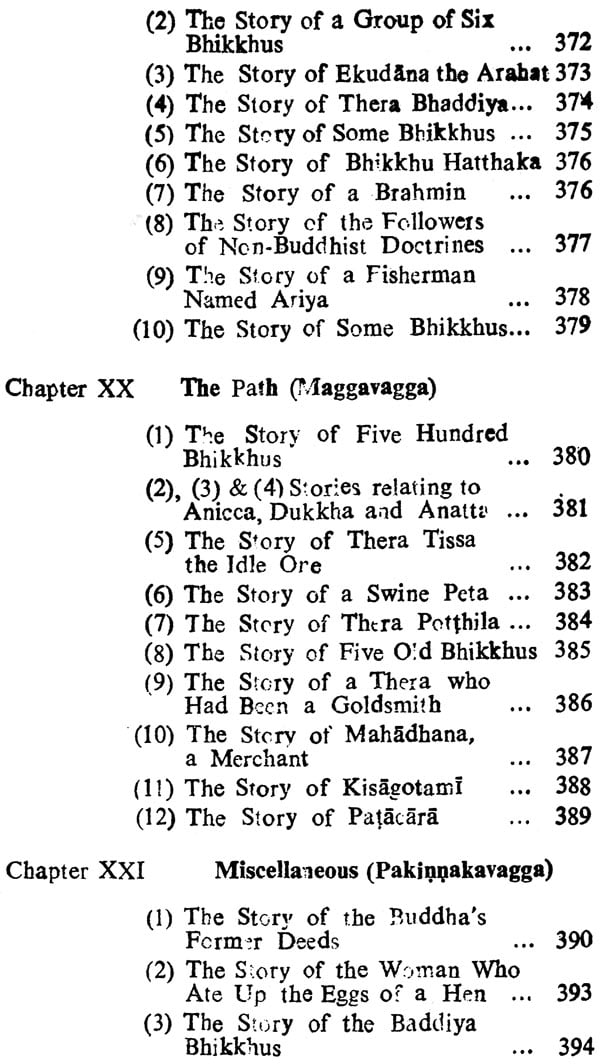
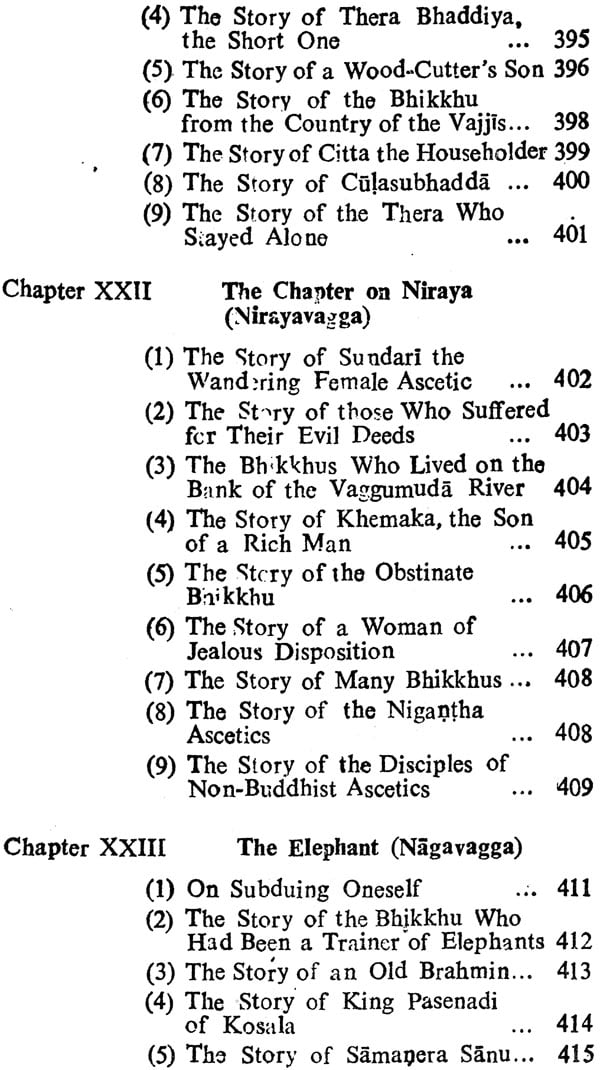
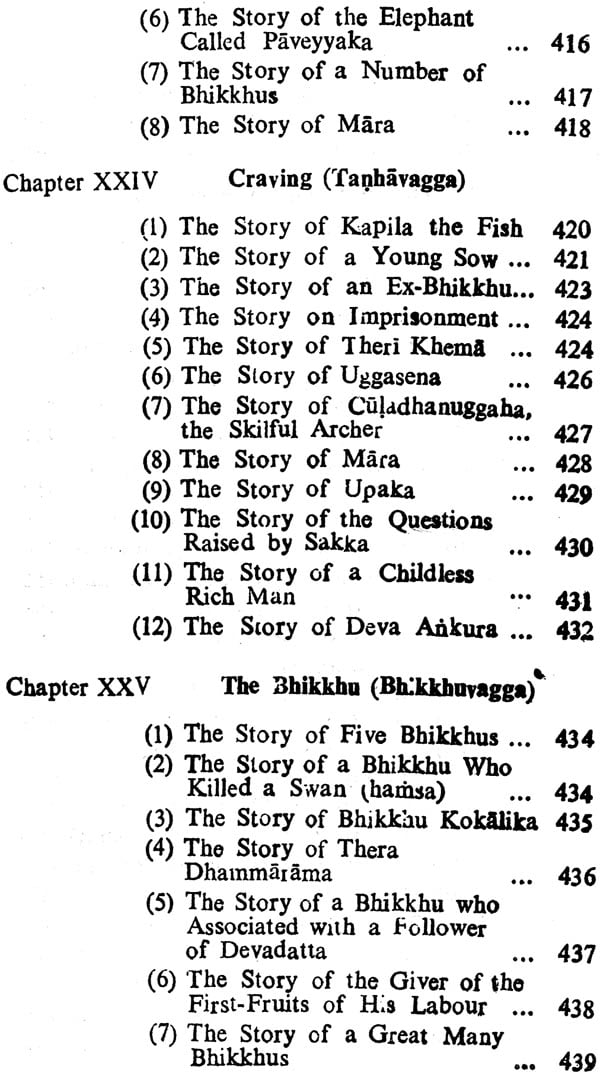
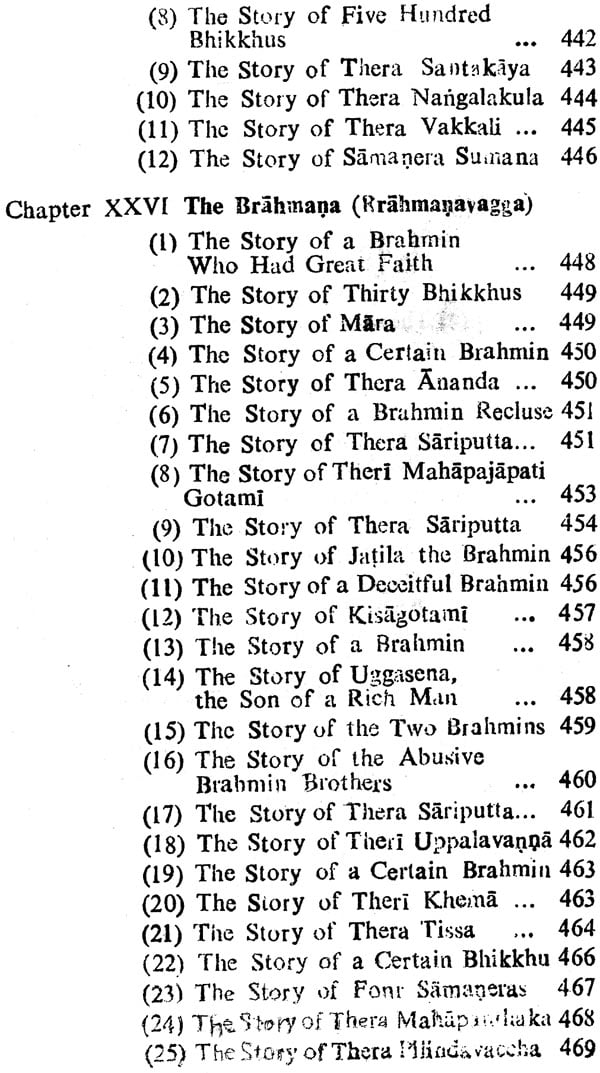
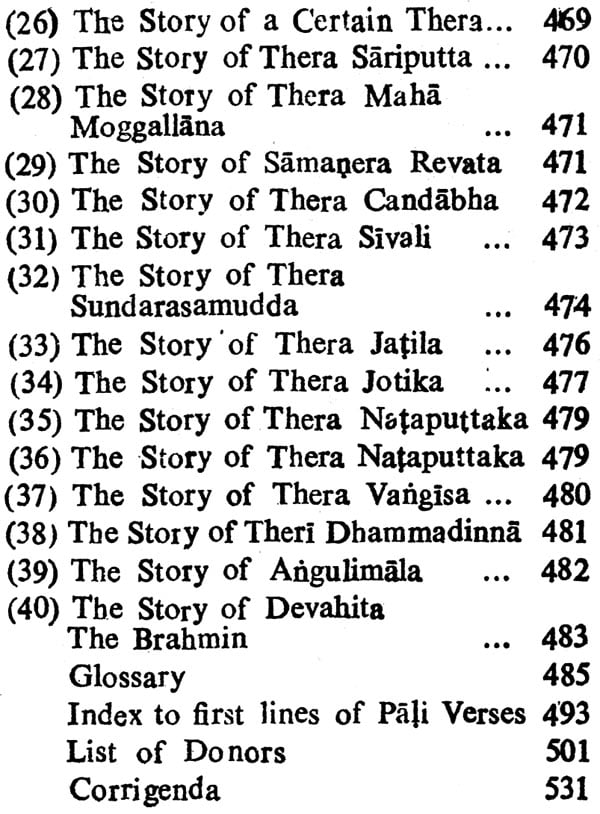
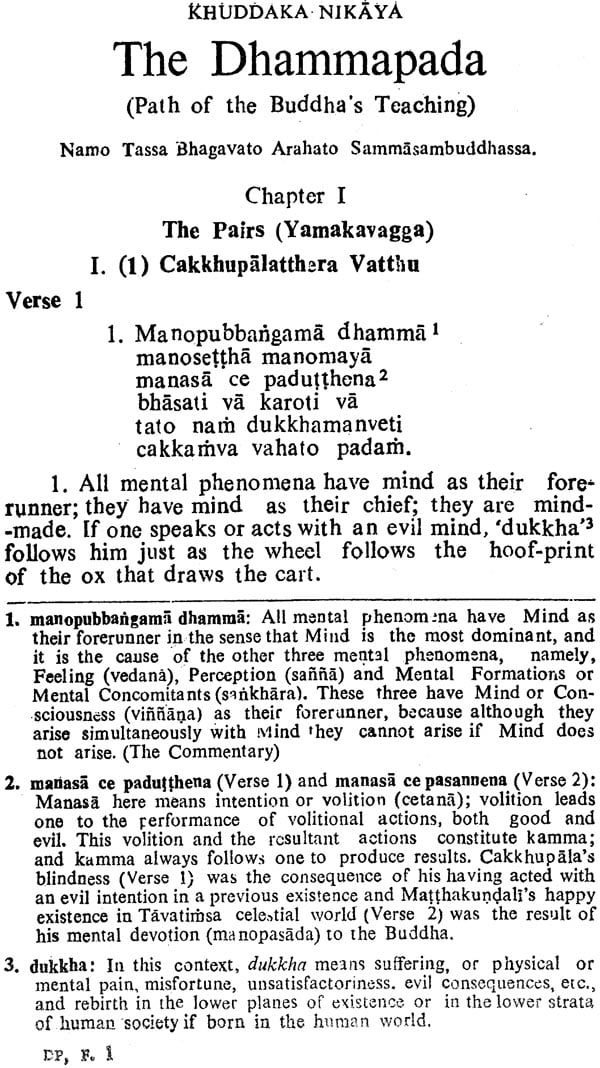
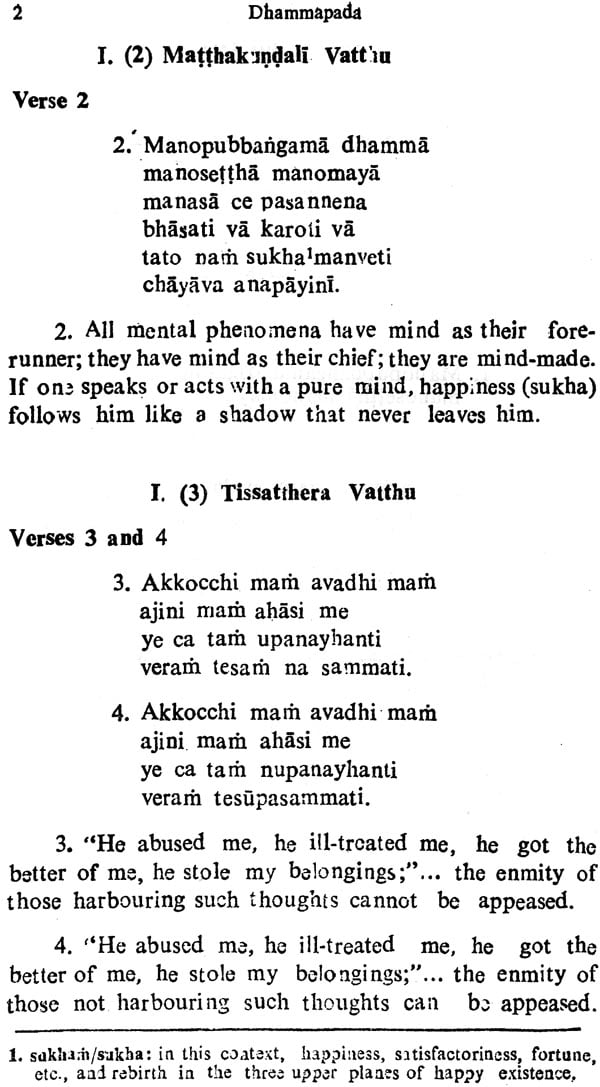
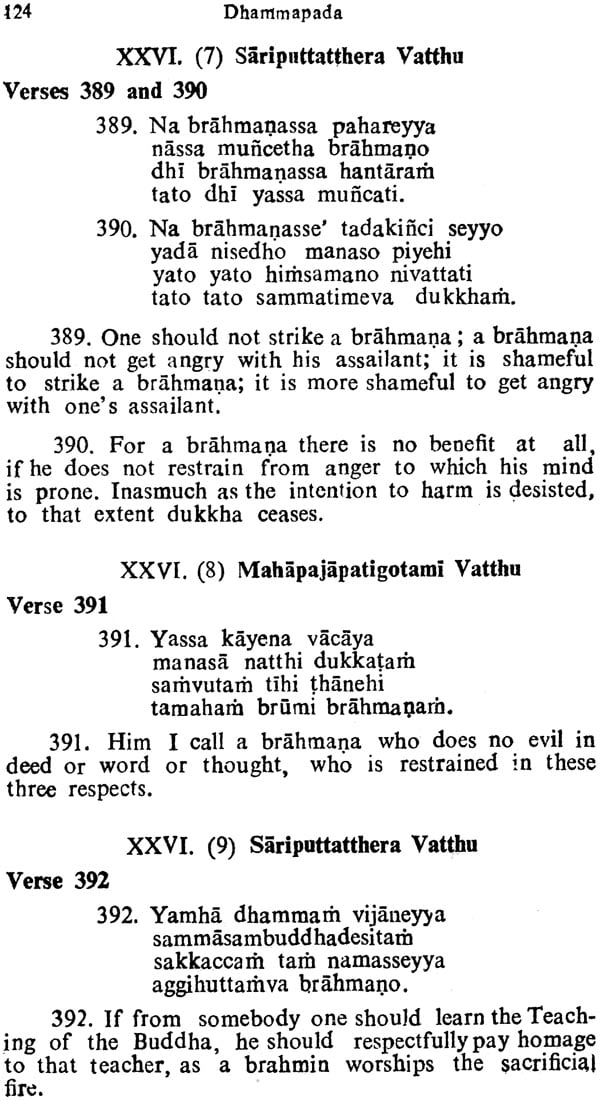
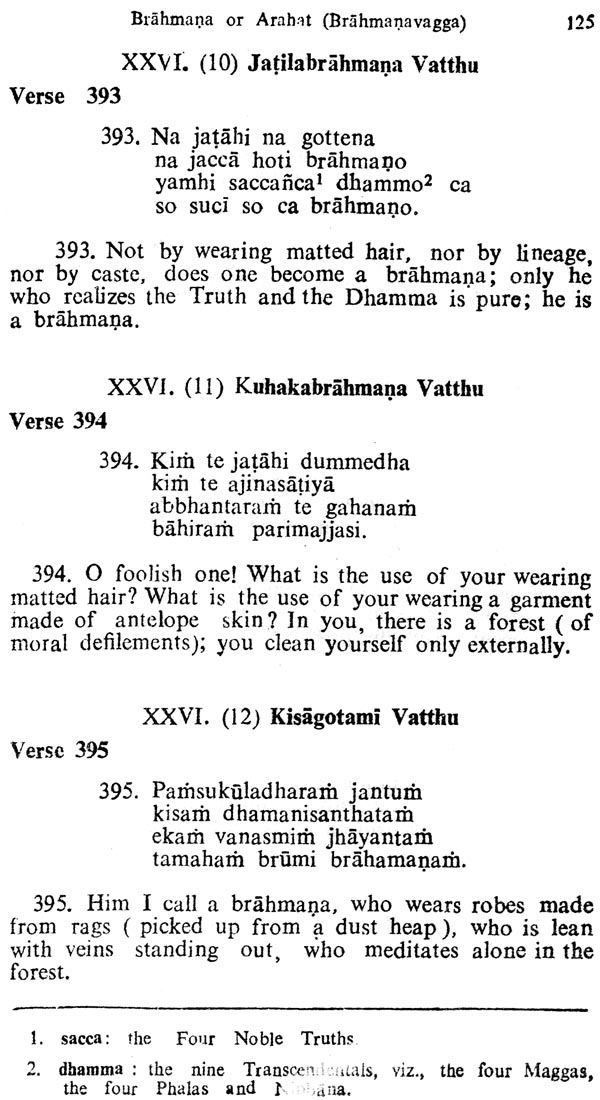
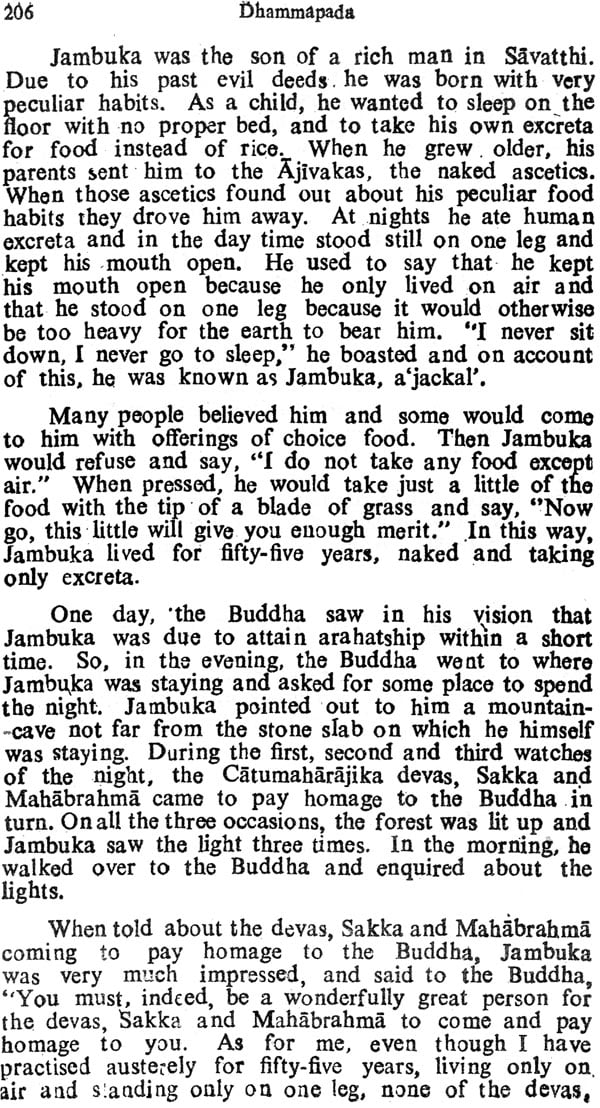
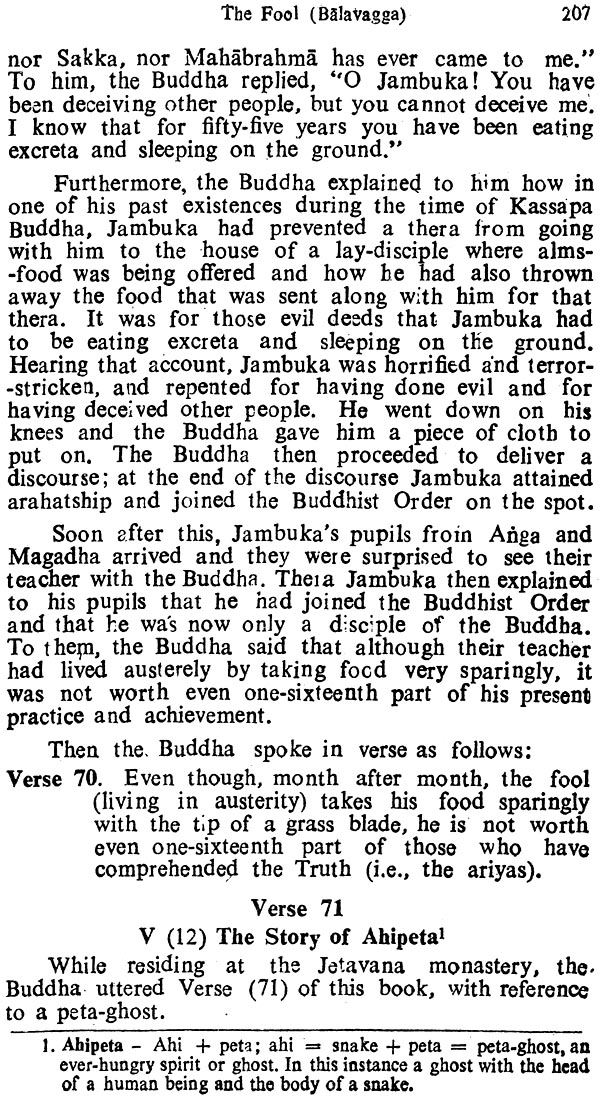
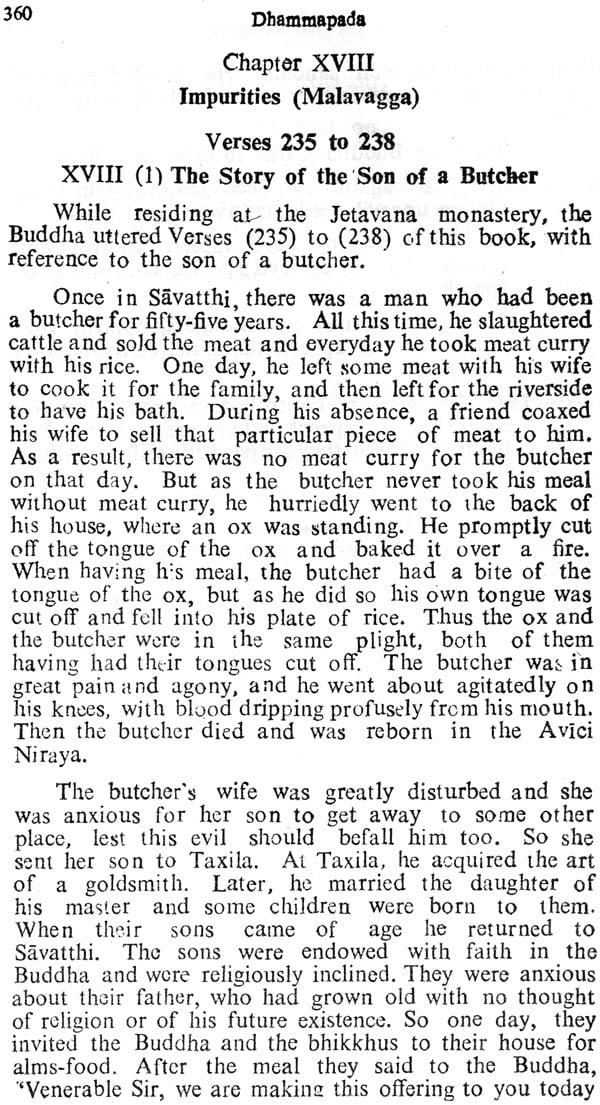
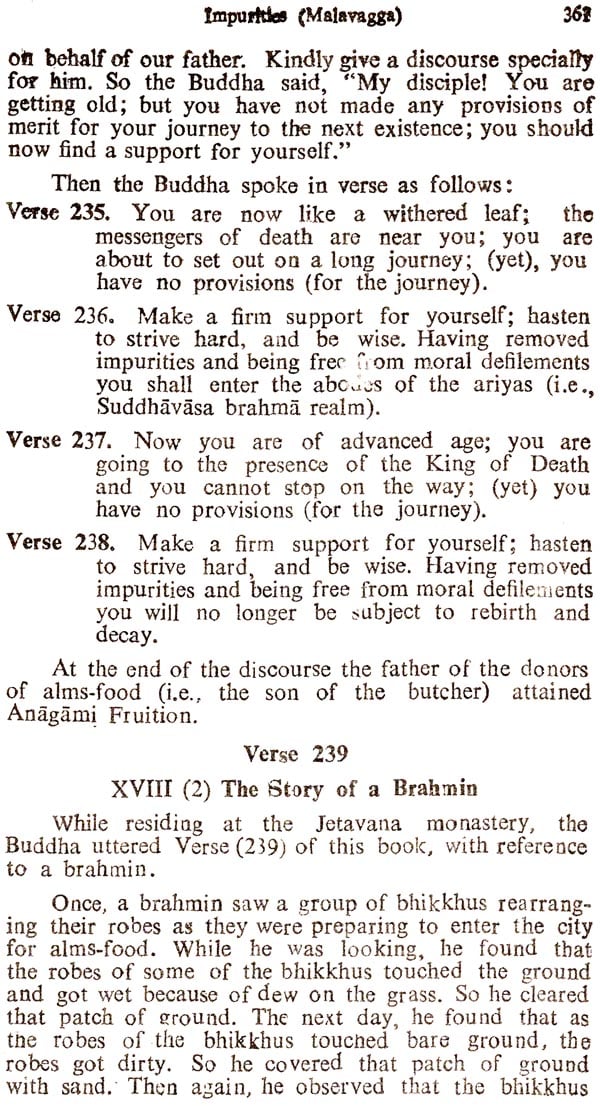
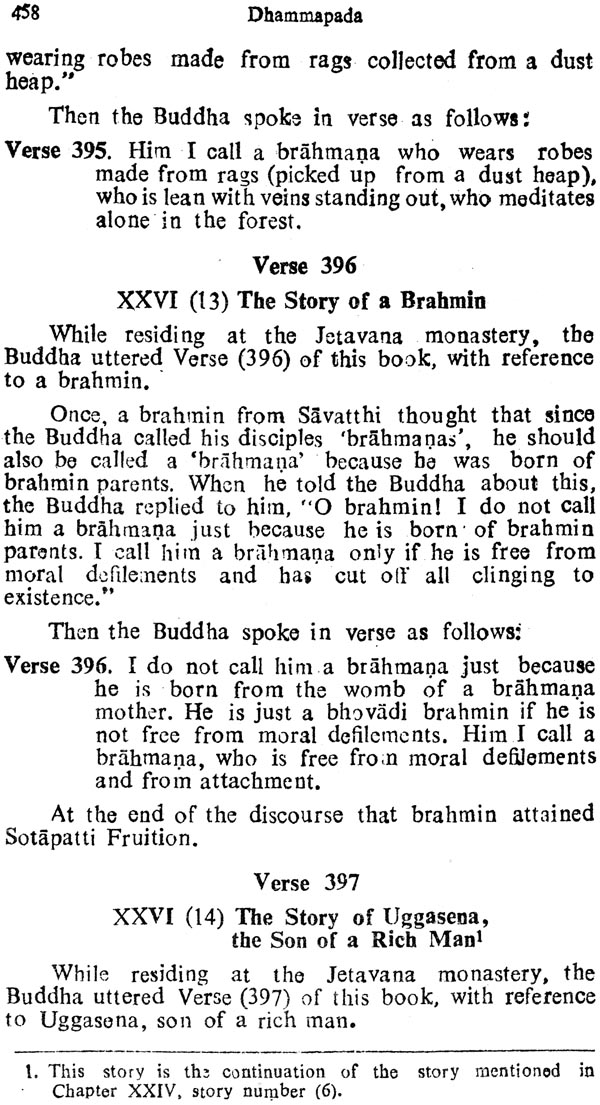
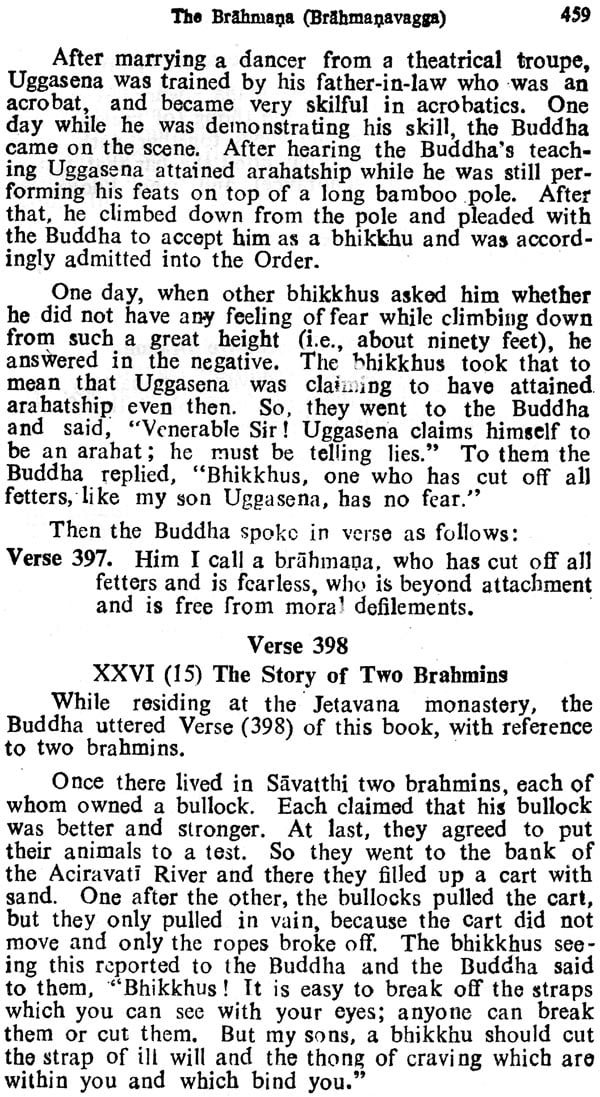
Delivery and Shipping Policy
- INTERNATIONAL SHIPPING
- Rs.1000-1100/kg
- ESTD. Delivery Time: 2-3 weeks (depending on location)
- Bubble Wrapped with Extra Padding
- NATIONAL SHIPPING
- NCR: Rs. 30/half kg
- Standard: Rs. 80/half kg
- Express shipments also available on Request
- ESTD. Delivery Time: Ranging from 1-4 days up to 7 business days (Depending on your choice of Delivery)
- TRACKING
- All orders; national or international, will be provided with a Tracking ID to check the status of their respective orders
- Depending on the Shipping Service, Tracking ID may be used on their respective tracking portals
Frequently Asked Questions (FAQs)
Domestic Shipping: 3-4 Days (after shipping)
International Shipping: 1-2 weeks (based on your location)
You will receive an email once your order has been shipped or you can email us if you didn't receive tracking details (info@mlbd.co.in)
Every book that we sell is the latest edition except all the rare books
Yes, we do provide free shipping, only on domestic orders (within India) above Rs.1500


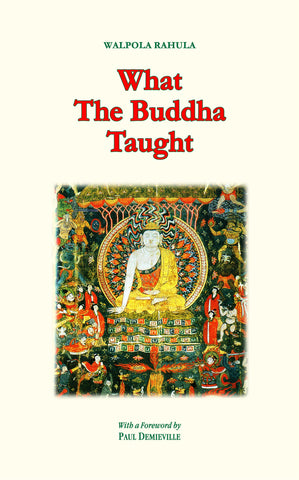
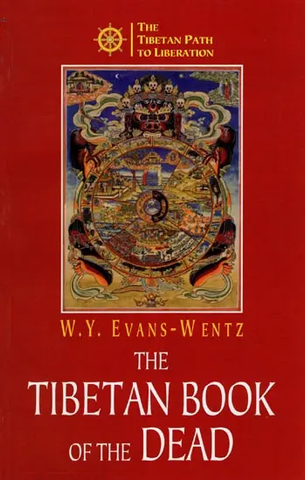
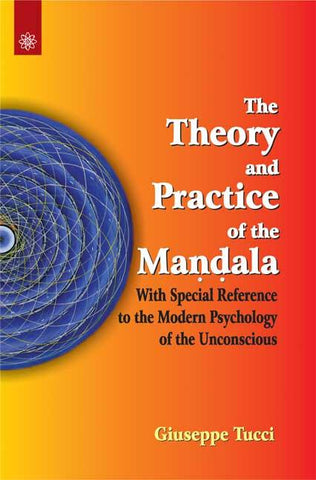
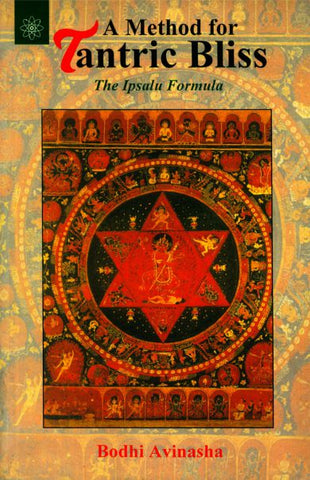
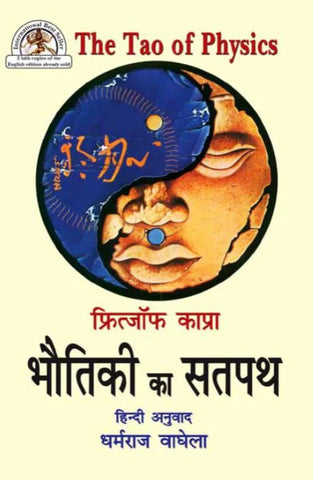
![The Rishukyo [Buddhica Britannica Vol.3]: The Sino-Japanese Tantric Prajnaparamita in 150 Verses (Amoghavajra's Version)](http://www.motilalbanarsidass.com/cdn/shop/products/RISHUKYO_large.jpg?v=1675417651)
